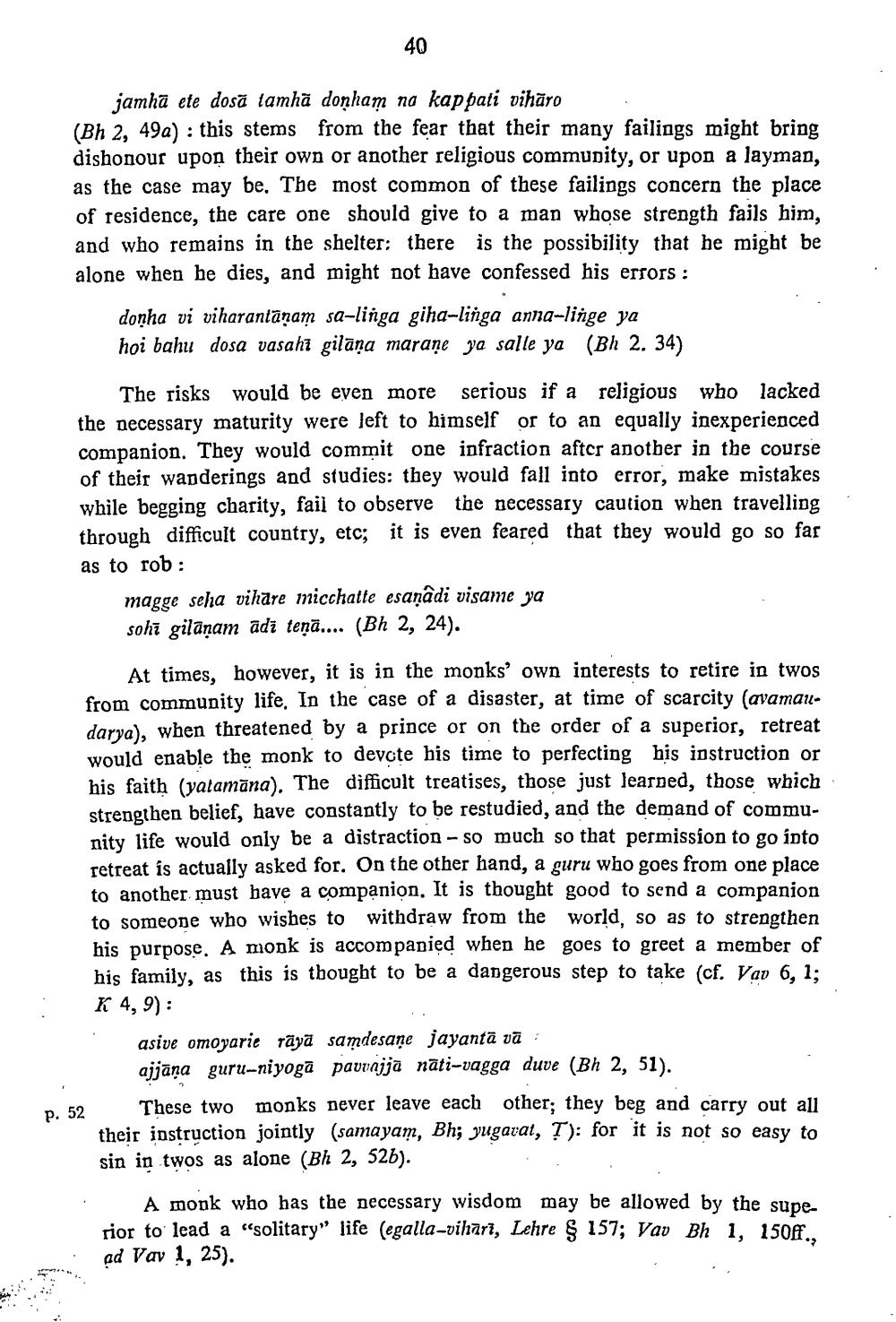________________
40
jamhä ete dosā tamhã donham na kappati vihāro (Bh 2, 49a) : this stems from the fear that their many failings might bring dishonour upon their own or another religious community, or upon a layman, as the case may be. The most common of these failings concern the place of residence, the care one should give to a man whose strength fails him, and who remains in the shelter: there is the possibility that he might be alone when he dies, and might not have confessed his errors :
donha vi viharantānam sa-linga giha-linga anna-linge ya hoi bahu dosa vasahi gilāna marame ya salle ya (Bh 2. 34)
The risks would be even more serious if a religious who lacked the necessary maturity were left to himself or to an equally inexperienced companion. They would commit one infraction after another in the course of their wanderings and studies: they would fall into error, make mistakes while begging charity, fail to observe the necessary caution when travelling through difficult country, etc; it is even feared that they would go so far as to rob :
magge seha vihare micchatte esanādi visame ya sohi gilanam adi tena.... (Bh 2, 24).
At times, however, it is in the monks' own interests to retire in twos from community life. In the case of a disaster, at time of scarcity (avamaudarya), when threatened by a prince or on the order of a superior, retreat would enable the monk to devote his time to perfecting his instruction or his faith (yatamāna). The difficult treatises, those just learned, those w strengthen belief, have constantly to be restudied, and the demand of community life would only be a distraction - so much so that permission to go retreat is actually asked for. On the other hand, a guru who goes from one place to another must have a companion. It is thought good to send a companion to someone who wishes to withdraw from the world, so as to strengthen his purpose. A monk is accompanied when he goes to greet a member of his family, as this is thought to be a dangerous step to take (cf. Vav 6, 1; K 4,9):
asive omoyarie rāya samdesane jayantä vä:
ajjāņa guru-niyogā pavvajjā nāti-vagga duve (Bh 2, 51). p. 52
These two monks never leave each other; they beg and carry out all their instruction jointly (samayam, Bh; yugavat, ?): for it is not so easy to sin in twos as alone (Bh 2, 52b).
.
A monk who has the necessary wisdom may be allowed by the superior to lead a “solitary” life (egalla-vihari, Lehre § 157; Vav Bh 1, 1508., ad Vav 1, 25).




